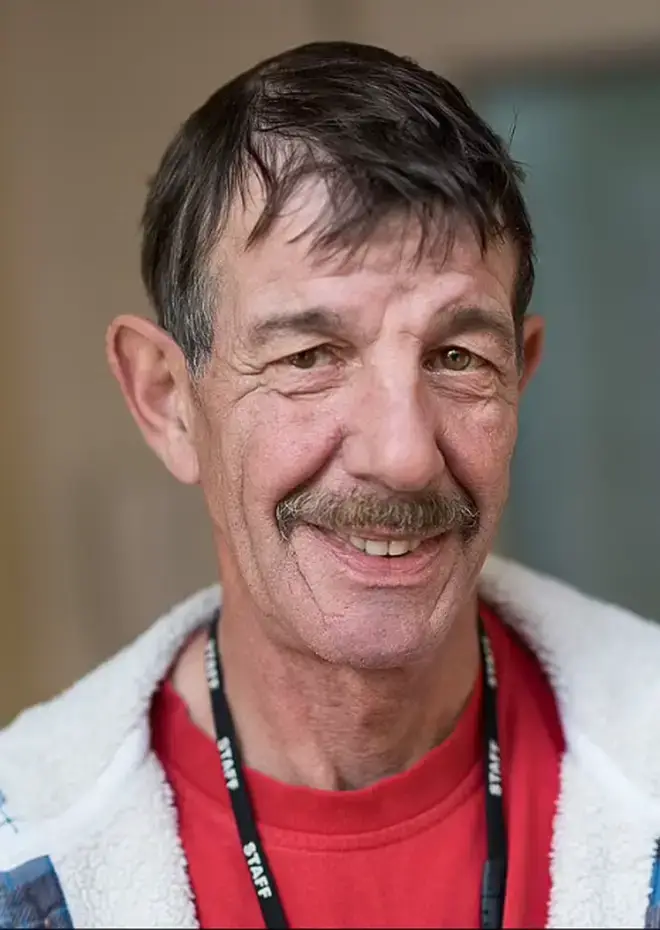
Nick Abbot 10pm - 1am
13 August 2024, 01:05 | Updated: 13 August 2024, 08:41

Police and medics who treated Valdo Calocane "have blood on their hands", the families of the Nottingham attack victims have said.
A review into Calocane's care before the Nottingham attacks found risk assessments played down the fact he was refusing to take his medication and was having ongoing and persistent symptoms of psychosis.
The report - from the Care Quality Commission (CQC) - also questioned how well the Nottinghamshire Healthcare NHS Foundation Trust (NHFT) engaged with Calocane's family, who raised concerns about his mental state.
Calocane stabbed students Barnaby Webber and Grace O'Malley-Kumar, both 19, as they returned from a night out in the early hours of June 13 last year, before killing Ian Coates, 65.
The victims' families said the review "demonstrates gross, systematic failures" and also claimed they had confirmation that a public inquiry into the case will take place.
Read more: Doctor had warned Nottingham attacker could 'end up killing someone' years before fatal stabbings

A joint statement said: "This report demonstrates gross, systematic failures in the mental health trust in their dealings with Calocane, from beginning to end.
"Clinicians involved at every stage of Calocane's care must bear a heavy burden of responsibility for their failures and poor decision-making.
"Sadly, this is the first of what we expect to be a series of damning reports concerning failures by public bodies in the lead up to the killings of our loved ones, and beyond.
"We were failed by multiple organisations pre and post June 13, 2023."
The statement went on to say: "Along with the Leicestershire and Nottinghamshire police forces, these departments and individual professionals have blood on their hands.
"Alarmingly, there seems to be little or no accountability amongst the senior management team within the mental health trust. We question how and why these people are still in position."
Radd Seiger, a spokesman for the Webber family, said they are deeply concerned about the outcome of the criminal case and called for a judge-led inquiry that leaves 'no stone unturned'.
When asked how soon an inquiry could be held, Mr Seiger said it needs to be built up "patiently and slowly" to gather all the evidence.
He told LBC's Nick Ferrari at Breakfast: "I've brought the best lawyers in the country in for these families, but inevitably, Nick, you need to spend a bit of time gathering all the evidence, making sure there's full disclosure.
"That half-hearted panorama program last night only looked at a portion of Calacone's medical records. So I'm sorry to be boring, but you need a bit of patience."

The special review of mental health services at NHFT was ordered by previous health secretary Victoria Atkins in January after Calocane was sentenced to an indefinite hospital order.
The CQC said Calocane's records make it "clear" that he was "acutely unwell" throughout the two years he was under the care of NHFT.
He was psychotic and suffering from paranoid delusions before eventually being diagnosed with paranoid schizophrenia in July 2020.
Between May 2020 and February 2022, eight risk assessments were completed for Calocane by the trust, which the CQC said appear to have been carried out for each of his admissions to hospital and updated at other times during his care.
The regulator said that while some risks were highlighted, other assessments "minimised or omitted key details".
These include the fact Calocane refused to take his medication, had ongoing and persistent symptoms of psychosis, was violent to others when psychosis was not managed well, and escalated his violent behaviour in the later stages of his care.

Chris Dzikiti, interim chief inspector of healthcare at the CQC, said: "This review identifies points where poor decision-making, omissions and errors of judgments contributed to a situation where a patient with very serious mental health issues did not receive the support and follow-up he needed.
"While it is not possible to say that the devastating events of June 13 2023 would not have taken place had Valdo Calocane received that support, what is clear is that the risk he presented to the public was not managed well and that opportunities to mitigate that risk were missed."
The CQC said Calocane had "little understanding or acceptance of his condition" which could "have significantly impaired his ability" to weigh up the pros and cons of antipsychotic treatment and the risks of discontinuing it.
It would have been possible to treat him under section 3 of the Mental Health Act (MHA) 1983 - which would have given doctors the power to administer drugs against his will - on his fourth admission to hospital in January 2022, the regulator said.
Instead, he was treated under section 2 of the act, which is usually for patients who are not known to mental health services.

Among its recommendations, the CQC said NHFT should review treatment plans for people with schizophrenia regularly, as well as ensuring clinical supervision of decisions to detain people under section 2 and 3 of the Mental Health Act.
It also called for NHS England to publish guidance setting out national standards for care for people with complex psychosis and paranoid schizophrenia in the next 12 months.
Health Secretary Wes Streeting, said: "I want to assure myself and the country that the failures identified in Nottinghamshire are not being repeated elsewhere.
"I expect the findings and recommendations in this report to be considered and applied throughout the country so that other families do not experience the unimaginable pain that Barnaby, Grace and Ian's family are living with."
The handling of the Calocane case prompted outcry and led to numerous inquiries into the public bodies involved, including Nottinghamshire Police and Leicestershire Police.
A Nottinghamshire Healthcare NHS Foundation Trust spokesperson said: "We acknowledge and accept the conclusions of this report and have significantly improved processes and standards since the review was carried out."